
The Pros and Cons of Clean and Dirty Bulking
Should you eat a clean bulking diet, a dirty bulking diet, or does it not even matter? To gain weight, we need to eat in a calorie surplus. The cleaner the diet, the harder it is to get into a surplus. The dirtier the diet, the easier it is to gain fat. Or at least that’s how the story’s often told.
I’ve tried both clean and dirty bulking. I’ve had success with both methods. I’ve gained about 35 pounds from dirty bulking, another 35 from clean bulking, bringing me from 130 up to 200 pounds. I’ve failed with both approaches, too.
Over the past eight years, we’ve helped over 10,000 other skinny guys bulk up. We’ve heard all the horror stories and celebrated too many successes to count. We’ve seen firsthand how the quality of our diets affects the composition of our gains.
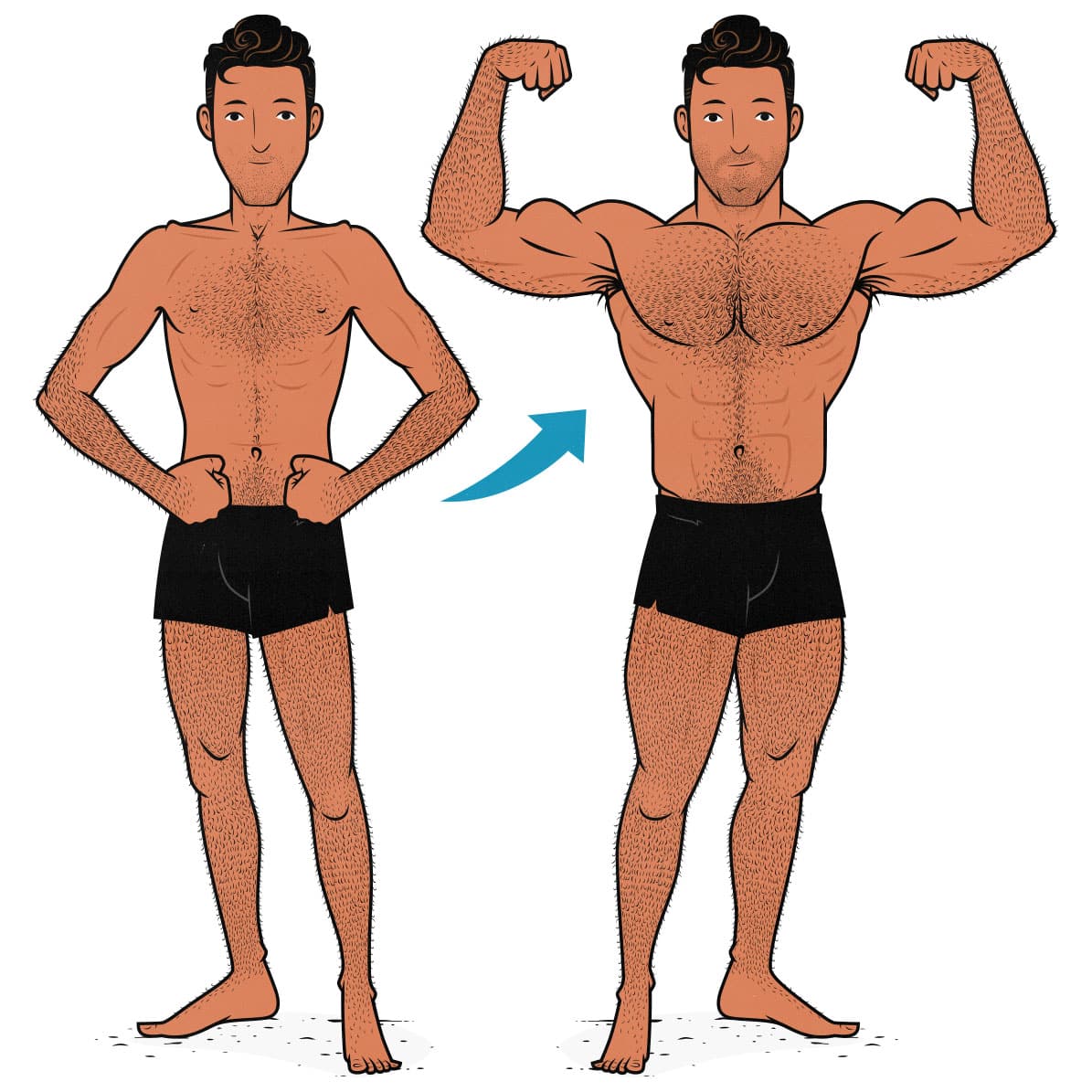
Dirty Bulking
What is Dirty Bulking?
Dirty bulking is when you eat a “see-food” diet, devouring everything in sight, gaining weight by whatever means necessary.
Dirty bulking was made famous by Westside Barbell powerlifters like Dave Tate, who would order McDonald’s cheeseburgers and hashbrowns for breakfast, have pizza drenched with olive oil for dinner, and then finish their days with chicken wings and fries. Not surprisingly, these guys were notorious for becoming both astonishingly strong and shockingly plump.
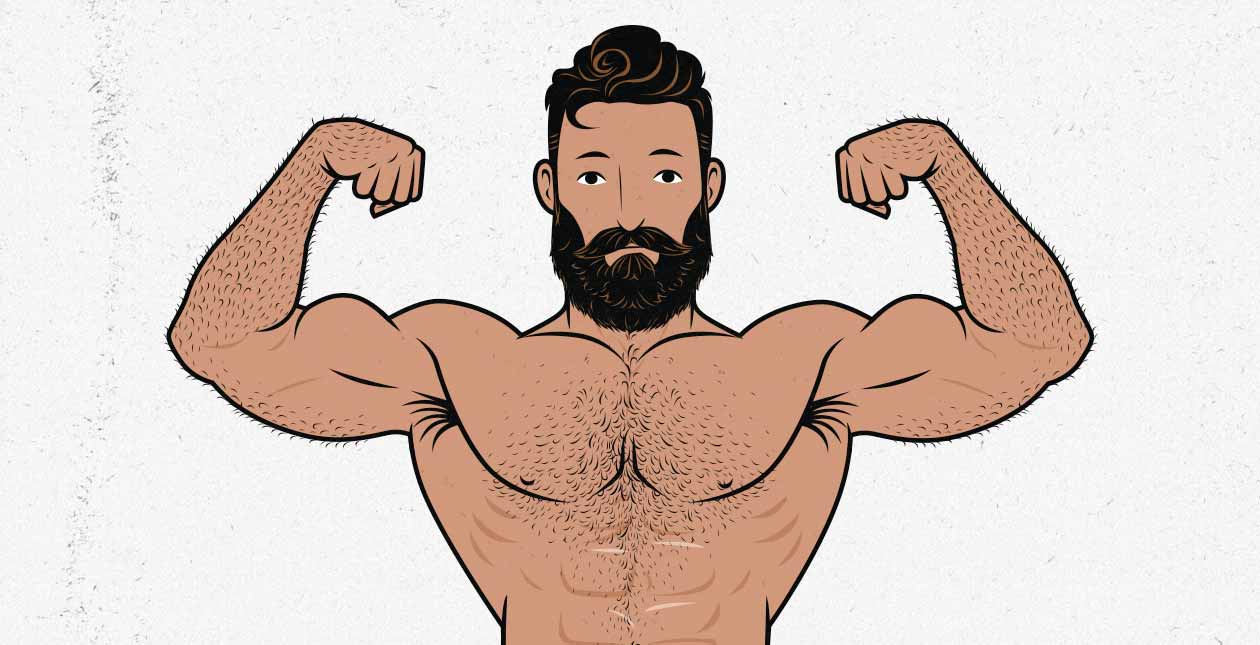
Dirty bulking culture is rife with treachery. Some of the most prominent dirty bulkers ran into health problems as they got older. Those health problems weren’t just due to their diets but also their extreme lifestyles and PED abuse. Even so, many abandoned their principles, becoming advocates of clean bulking.
Are Dirty Diets Good for Building Muscle?
Dirty bulking has a few advantages, especially for skinny guys who are having trouble gaining weight:
- Junk food is less filling per calorie, making it easier for us to get into a calorie surplus (study).
- Processed foods can be faster to digest. They’re somewhat predigested, with much of the fibre processed out, putting less strain on our digestive systems—at least in the short term.
- Eating an unrestricted diet is hedonistically pleasurable.
Dirty bulking has a few disadvantages as well:
- Processed food is often high in saturated fat, which can cause us to store proportionally more visceral fat (study, study). Visceral fat accumulates around our organs. In excess, it can harm our health. We don’t want to gain proportionally more of it.
- Processed foods are higher in simple carbs and lower in fibrous carbs. Fibre is incredibly good for our long-term health (study). Soluble fibre helps regulate blood sugar and blood lipids. Insoluble fibre strengthens our gut microbiome, improving digestion.
- Processed foods are lower in vitamins, minerals, probiotics, phytonutrients, and other micronutrients. We can sustain our size and strength with protein, carbs, and fat, but to maintain our health, we need much more than that.
You can try to outlift and outrun a bad diet. Lifting weights is great for stimulating muscle growth and warding off fat gain. Cardio can strengthen your cardiorespiratory system and further prevent visceral fat gain (study, study, study, study). Still, you’d do even by lifting weights, doing cardio, and eating a nutritious bulking diet.
If you insist on dirty bulking, I don’t blame you. I’ve been there. I’ve tried it. I bulked up by eating junk food, chugging mass gainer shakes, and taking too many supplements. But try to include as many healthy foods in your diet as you can manage. Start your day with a nutritious smoothie made from Greek yogurt, spinach, frozen berries, mixed nuts, bananas and water. Snack on trail mix. Cook up big pots of chili or stew.
If you’re having a hard time eating enough calories, indulge in some junk food, but keep it moderate. Try to get at least 80% of your calories from nutritious foods.
Clean Bulking
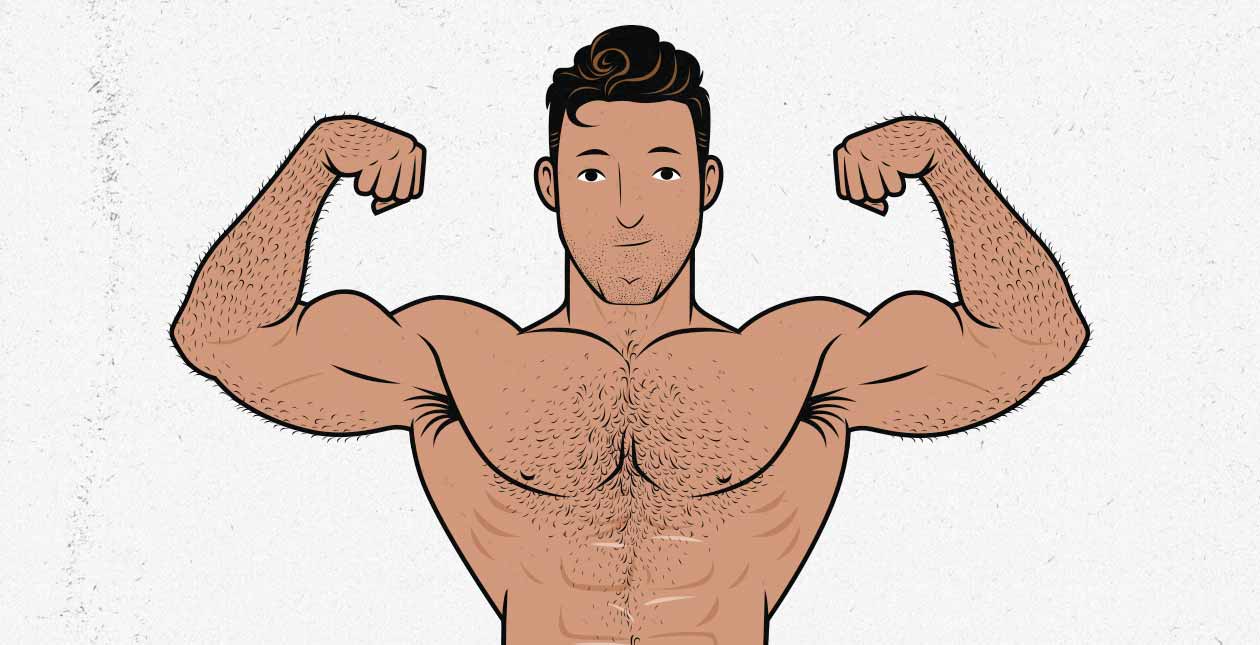
What is Clean Bulking?
Clean bulking is when you gain weight by eating morally pure, “clean” foods. Someone eating a clean diet might avoid deep-fried foods, processed vegetable oils, alcohol, white sugar, and everything else that’s white (white rice, white flour, white potatoes, and so on). Instead, they eat chicken breast, tuna, spinach, broccoli, oats, nuts, and extra-virgin olive oil.
Some foods are unfairly villainized. There’s no reason to avoid white potatoes. They’re perfectly nutritious. But clean bulking isn’t a science, it’s a dogma. White potatoes look unhealthy, and so they’re forbidden.
Clean bulking has been popular in the bodybuilding scene for decades now. Bodybuilders are infamous for bringing Tupperware containers to restaurants, saying no to birthday cakes, and carrying tuna salad in their fanny packs.
Is Clean Bulking a Good Way to Bulk Up?
Clean bulking has its advantages. Even though it isn’t perfectly logical, it has a pure spirit, and so it usually winds up being much healthier than dirty bulking. It can also produce better muscle growth and help ward off fat gain, kind of.
- Nutritious foods often result in leaner muscle gains (study, study). Clean bulking gives us more vitamins, minerals, phytonutrients, and fibre, supporting our health, improving our recovery, and making it easier to build muscle. Some of these benefits are subtle, too. For example, eating more spinach, carrots, seeds, and garlic improves blood flow, giving us fuller muscle pumps, and improving muscle recovery and growth. You can find similar benefits hidden in many whole foods.
- If we gain fat, more of it is subcutaneous, and less of it is visceral (study, study). This is great for the health of our organs and much better for our long-term health.
- Diets rich in fibre and probiotics strengthen our digestive systems, improving our health, and making it easier to gain and maintain muscle mass.
- Eating a clean bulking diet is strict but simple, making it relatively easy to adhere to. Some people find it hard to eat junk food in moderation. After one chip, they reach for another. After one beer, they’re tempted to have a second. Sometimes it’s easier to eat completely clean.
- It’s easier to keep your life on track when you’re sober.
Clean bulking has some disadvantages, too:
- Whole foods tend to be more filling per calorie. This is both an advantage and a disadvantage. Skinny guys trying to bulk aggressively might struggle to eat enough calories. However, skinny-fat guys trying to bulk leanly might find it easier to maintain a smaller calorie surplus.
- Many people find clean eating unsustainable. It can be difficult to have a rich social life when you’re prevented from eating most foods you’d find at a restaurant, wedding, or Day of the Dead altar.
- Many of the rules that clean bulkers adhere to don’t make very much sense. There’s no need to avoid sugary fruits or white tubers. And besides, diets that are 80–90% nutritious tend to be as healthy as diets that are 100% nutritious.
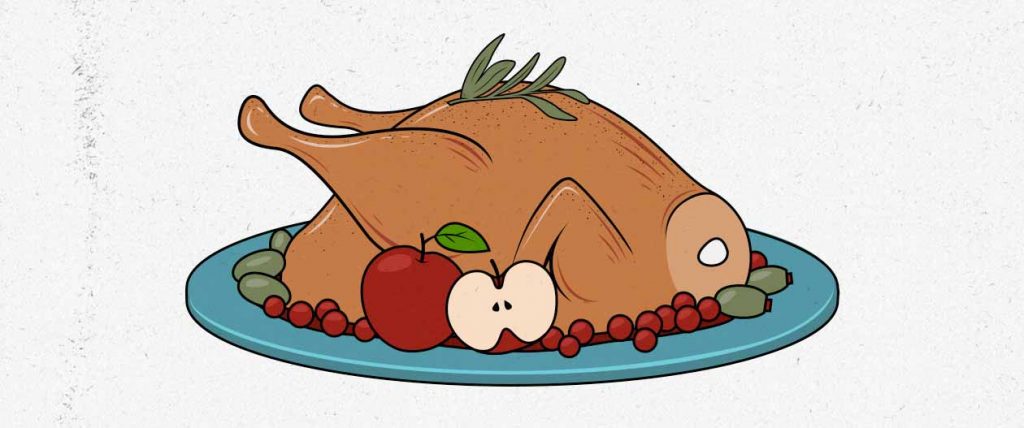
If you find yourself leaning towards a clean bulking diet, that’s perfectly fine. They can be incredibly healthy. They’re also quite good for building muscle. That’s why they’re so popular.
However, you can keep all of the advantages and offset most of the disadvantages by eating a nutritious bulking diet instead of a clean bulking diet. You can eat white potatoes, season your chicken, leave the yolks in your eggs, and drizzle some honey on your Greek yogurt and berries. Maybe even sprinkle some dark chocolate chips on top. Not only will the extra variety add more nutrients to your diet, but it will also make it easier to gain weight.
Should Skinny Guys Bulk Clean or Dirty?
Both clean and dirty diets can be good for building muscle. As long as your diet isn’t disastrous, your rates of muscle gain will largely be determined by how new you are to lifting, how far away from your genetic potential you are, how good your hypertrophy workouts are, how good your bulking macros are, and how well you’re sleeping.
Dirty makes it easier to get into a calorie surplus. Clean bulking is healthier. Both can work, but both have their disadvantages. Namely, dirty bulking isn’t as healthy and can cause disproportionate fat gain, whereas clean bulking is unscientific and needlessly strict.
You can get the best of both worlds by eating a nutritious bulking diet. Avoid junk food, but don’t be needlessly restrictive, either. Indulge in white potatoes, seasoned chicken, and eggs with the yolks still in them. Drizzle some honey on your Greek yogurt and berries. Maybe even sprinkle some dark chocolate chips on top. Not only will the extra variety add more nutrients to your diet, but it will also make it easier to gain weight.
With a nutritious bulking diet, you’ll build a stronger digestive system, have better blood flow, and get bigger muscle pumps. You’ll gain less visceral fat, have more energy, and won’t get sick as often. You’ll do a better job managing your blood sugar and blood lipids. You’ll be healthier and live longer.
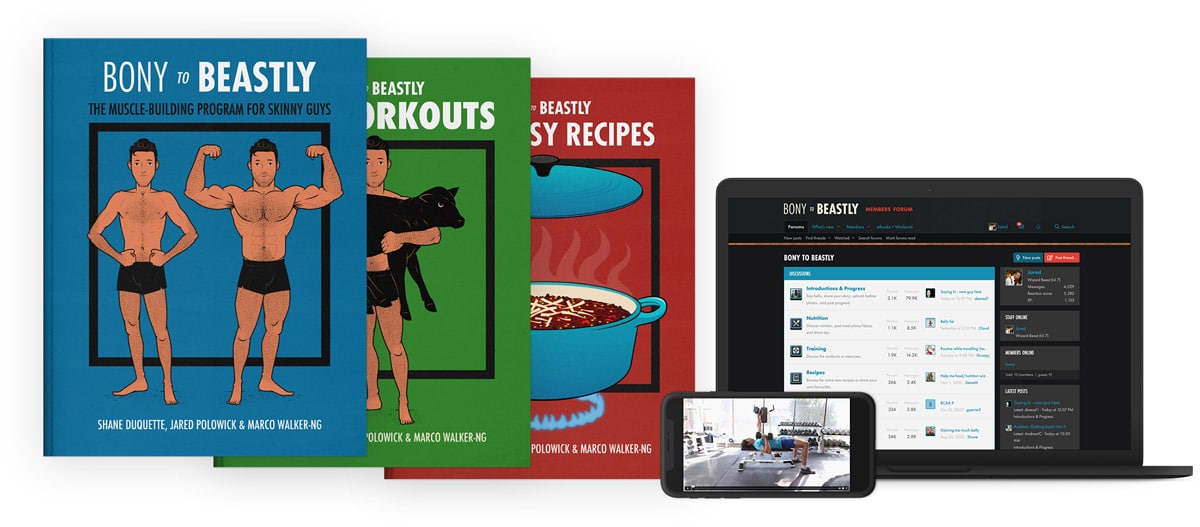
Alright, that’s it for now. If you want more muscle-building information, we have a free bulking newsletter for skinny guys. If you want a full foundational bulking program, including a 5-month full-body workout routine, diet guide, recipe book, and online coaching, check out our Bony to Beastly Bulking Program. Or, if you want a customizable intermediate bulking program, check out our Outlift Program.

